Changing guitar strings as much as you’re supposed to as a frequent player produces quite a bit of waste, and if you’re in a similar position, you might be concerned about how you might reduce your trash output. Unfortunately, guitar strings can’t be recycled in the traditional sense. But there is a way around it.
To recycle guitar strings, take them to your local recycling center or to a scrap yard. However, you’ll need to ensure they’re accepted first. You can also sign up for the D’Addario Playback Program if you’re a resident of the United States. Try to collect at least 2 pounds first.
How to Recycle Guitar Strings
Back in April of 2016, D’Addario launched the Playback awards program where you can ship your strings to them in a 2-pound minimum package in exchange for points. These points can be exchanged for new strings and other products from D’Addario like merchandise, straps, new strings, and other cool gear. The caveat is that Playback is only available in the United States at the moment, although, Players Circle is available in many countries.
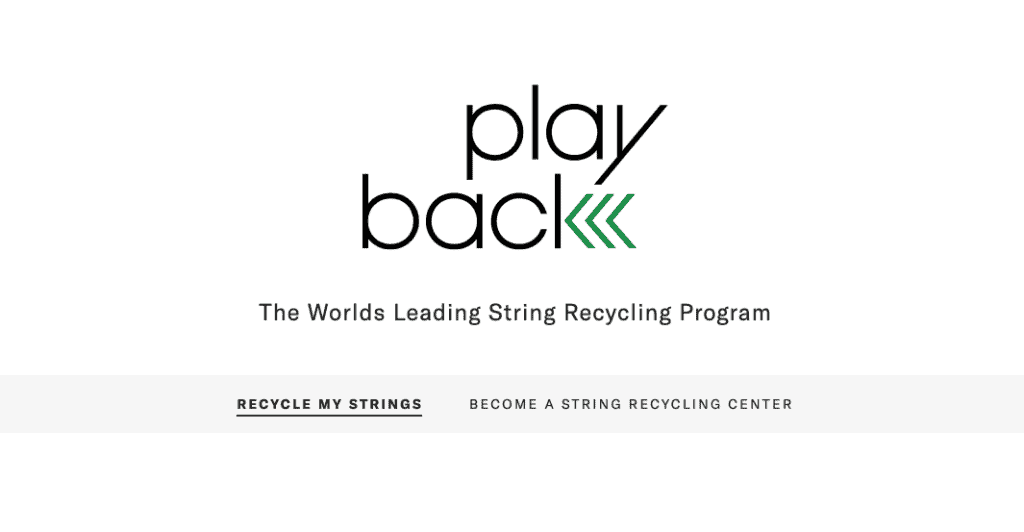
As I just said above, most municipal garbage collecting systems don’t actually accept instrument strings as recyclable material contrary to what some people online say, however, because of D’Addario’s new Playback program, you can ship them off to D’Addario and you’re good to go.
Music Radar reports that there are approximately 1.5 million pounds of string metal garbage every single year. It’s hard to believe that there is that much trash from just metal guitar strings, but it really puts into perspective how much waste our society produces.
For that reason, every little bit helps. D’Addario isn’t the first company to implement this kind of program.
The first company to ever conduct a recycling program is Cleartone, however, D’Addario is special in the sense that users of the program are able to send or drop off used guitar strings, from any company to all participating locations, or you can print off a special shipping label from Playback and send it in the mail.
D’Addario will either make a donation to a charity of some kind, or the person who sent the strings can receive loyalty points. On their page, D’Addario explains that for every 1/4 pound of strings that you send, you can earn either 100 Players Circle points or put $1 towards The D’Addario Foundation.
What Are the Requirements Before You Can Send Your Strings?
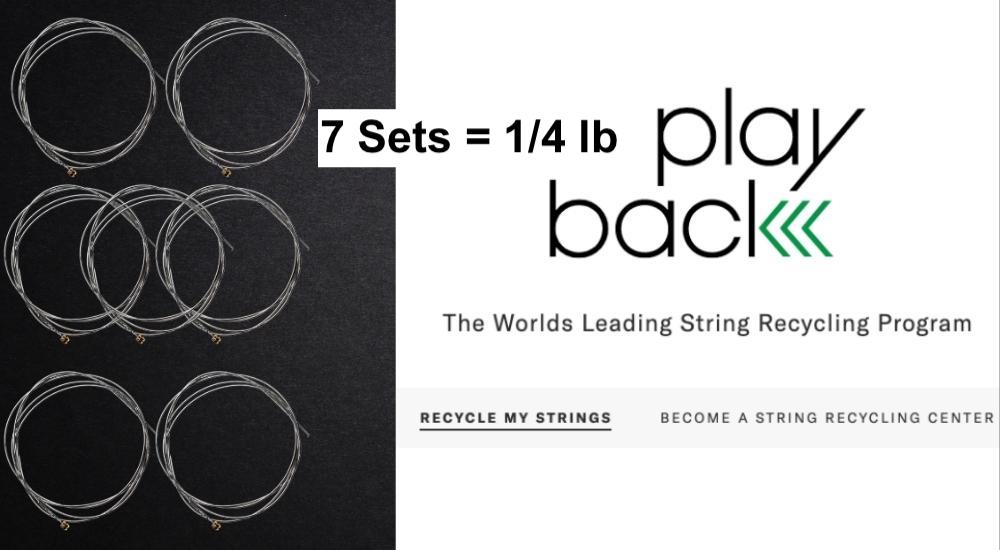
According to the website, about 1/4 pound equals six sets of acoustic guitar strings, two sets of bass guitar strings, or seven sets of electric guitar strings.
Different sets can be mixed in with each other in one single shipment, so the sender doesn’t have to worry about mixing and matching different types of strings.
The rewards are given to you based on the weight of the shipment. After the company has received the package of strings, whether nylon or metal, they’re separated according to the type and all of the metal is melted down and smelted into new materials.
Created in collaboration with TerraCycle, the program is only available in the United States at the moment, but they intend on taking it worldwide over the next few years.
How To Recycle Your Strings Through The Playback Rewards System
1) Go to this website https://www.daddario.com/playback/recycle/
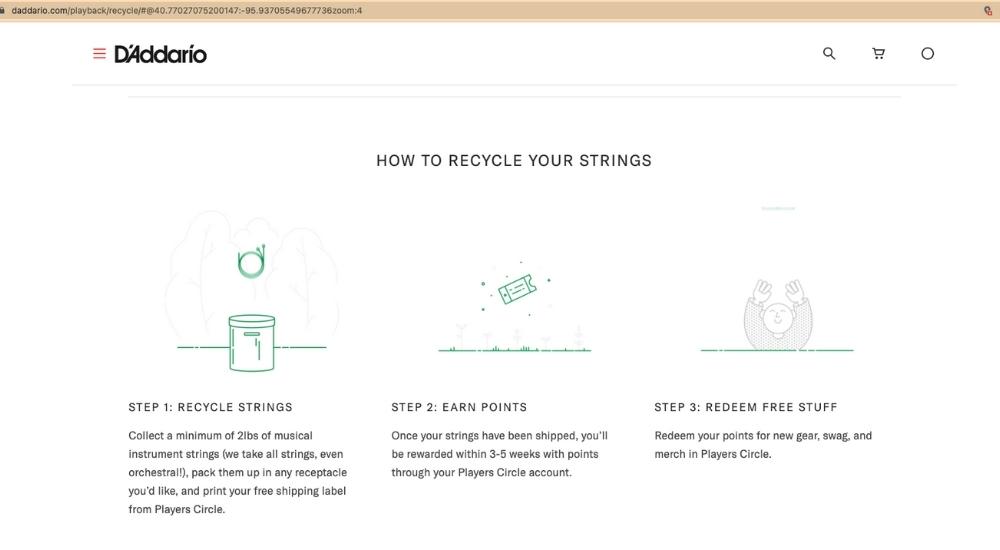
2) Create an account with Player’s Circle – including filling out all of your personal information
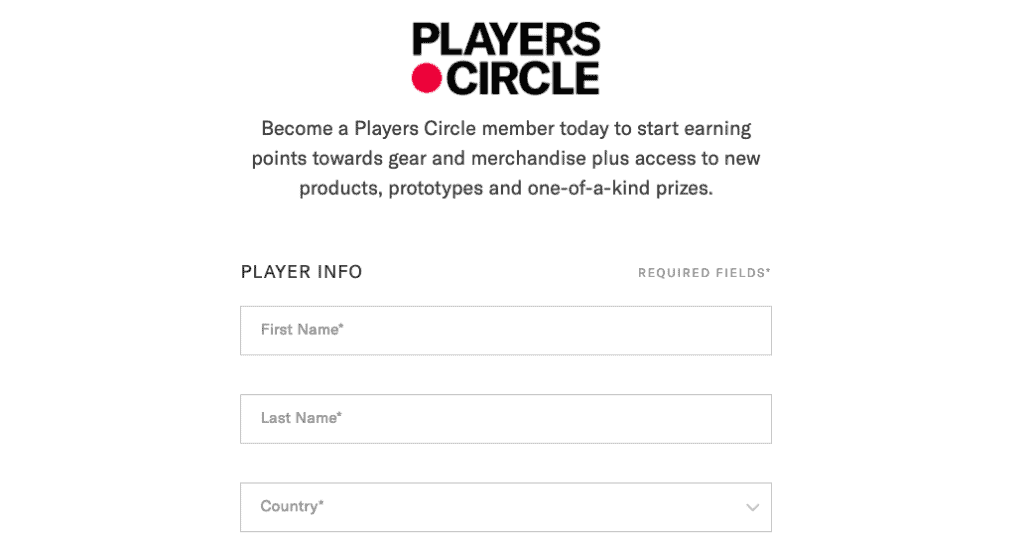
You’ll have to sign up to Player’s Circle in order to get the free shipping label that you’ll use for sending them off in the mail.
3) Once you’ve signed up, they will send you an email asking you to activate your account
4) Open up the email and activate your account
5) Fill Out The Shipping Label Form
A) Type In Your Email and Name
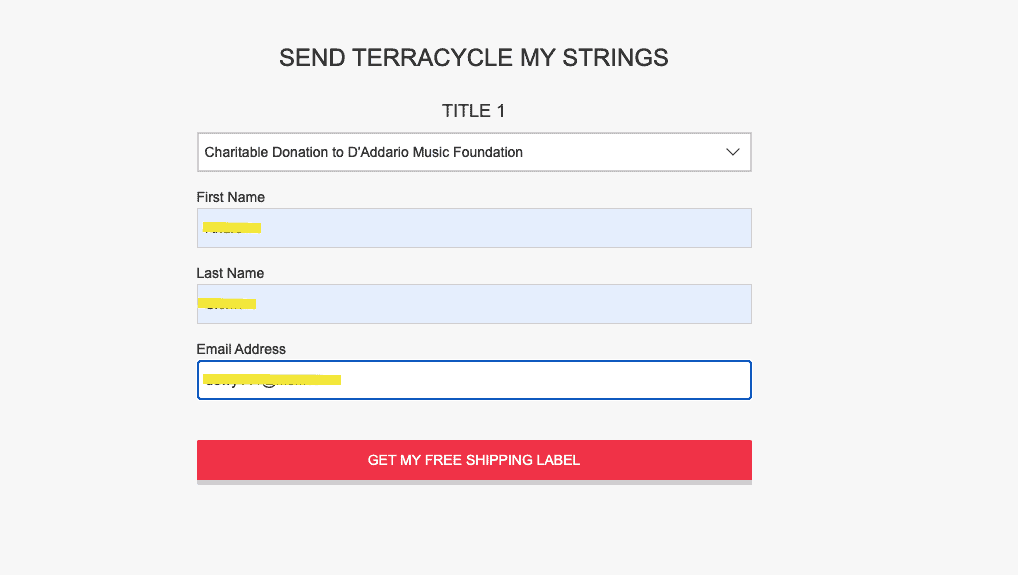
Type in your name and email address and choose whether you want to make a donation to D’Addario Music Foundation or redeem your points
B) Type In Your Name And Home/Business Address
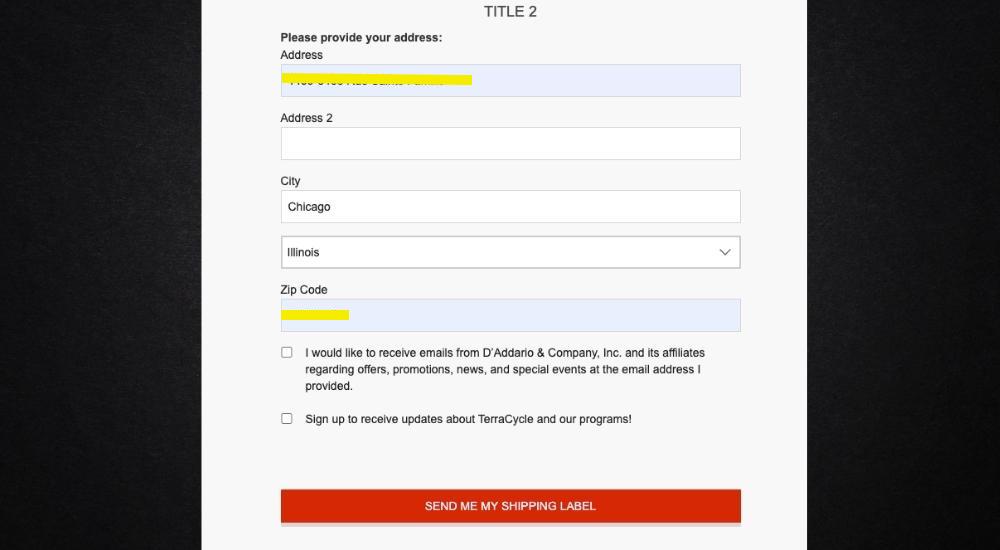
C) Receive the Shipping Label in Your Email
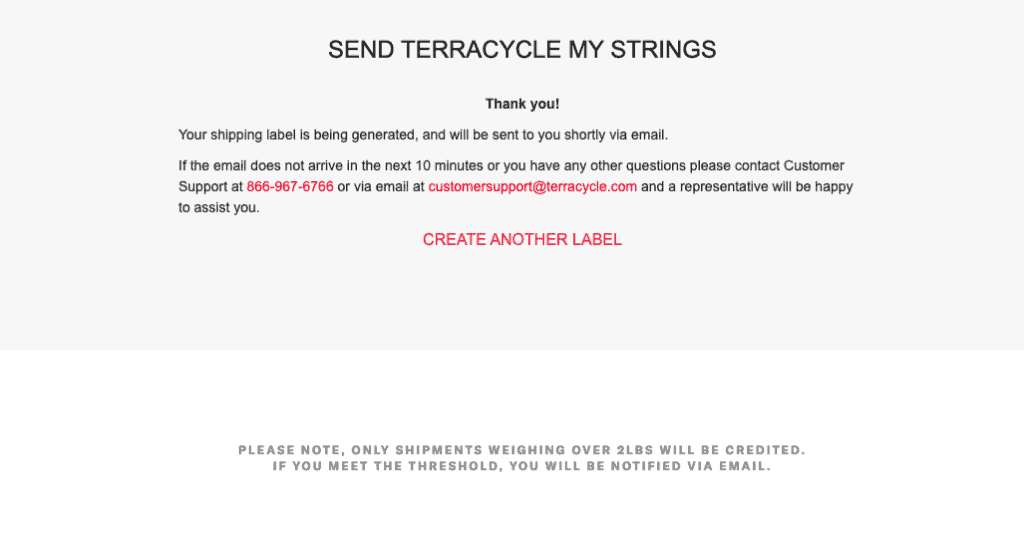
6) Send Them in the Mail
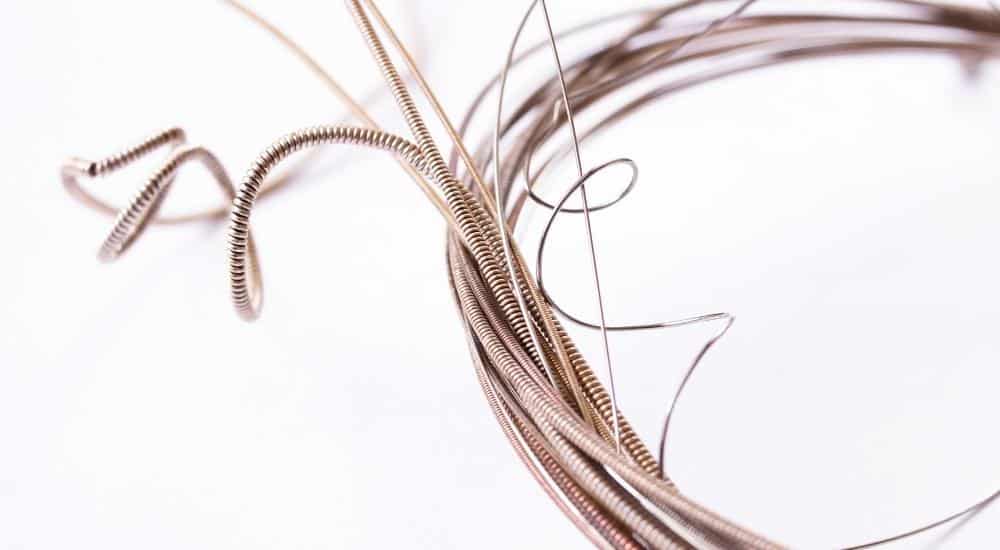
Once you’ve collected 2 pounds of guitar strings, which should probably take you around a year, you can print off a shipping label from the company and send them off. How you ship them depends on what you have available, but I imagine that a small box would be the best way because you can fit several pounds of strings in it.
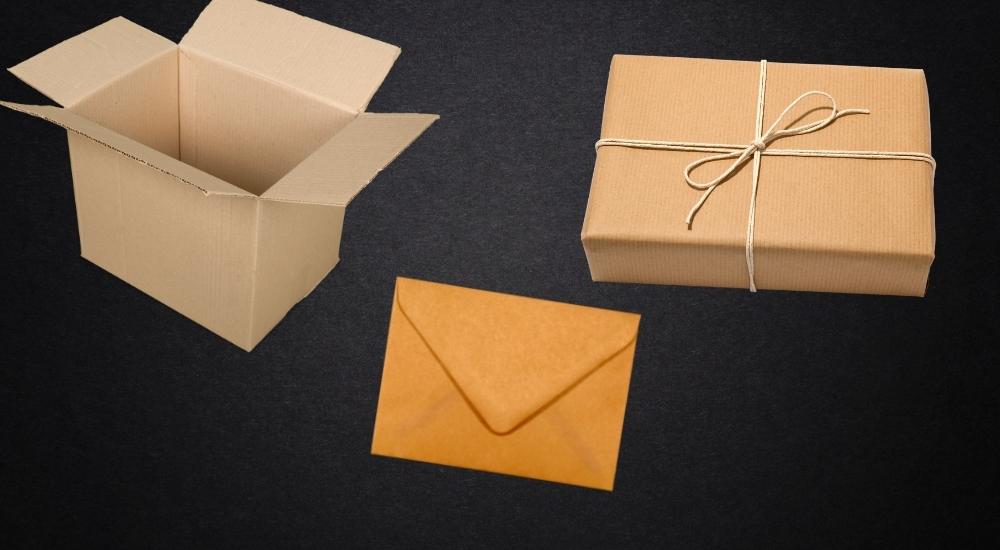
However, if you’ve chosen to ship off just 7 sets or a similarly small amount, a regular mail package or even an envelope would work just fine. Once Terracycle/D’Addario has received your shipment, you’ll get an email that thanks you for participating and you’ll notice that your points have been updated on the log-in pager of the Players’ Inner Circle.
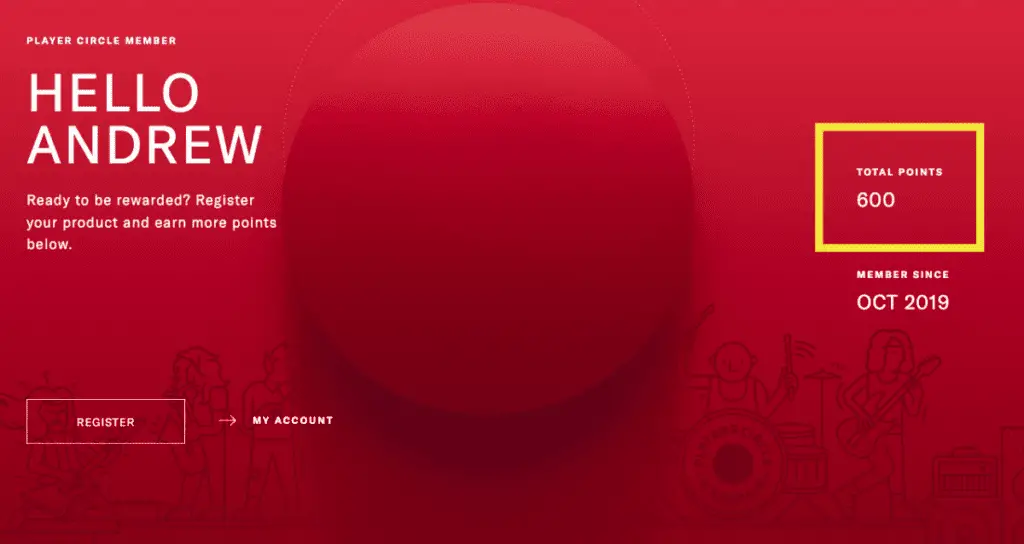
Alternative Ways Of Recycling Your Strings
1) Collect Guitar Strings For Years And Take Them To A Scrap Yard
Another common thing that people can do, if they really so choose, is to simply collect all of their guitar strings over a 1-2 year period, and then take it to a scrap-metal yard and give it to them. This is a little bit more time-consuming, but chances are, if you’re reading this, you care enough to do so.
According to Premier Guitar, most scrap yards accept guitar strings, however, it’s not something that you should expect to make money from. It’s more of a decision that one makes out of environmental consciousness.
What you can do is set up a 5-gallon pal in your garage and just toss all of your old strings in there. What the scrapyards do is they pay for all of the old metal that people no longer use, and then they melt it down and re-sell it.
2) Throw Them in the Recycling Anyway
According to Ben Juday, who apparently is the founder of Analog Outfitters, it’s much better to toss your guitar strings in the recycling bin than in the trash, because it’s more likely to make it to the recycling stream than if you just toss them in the trash.
He says in the article for Premier Guitar, “Above all, don’t put metal in your trash.” Because scrap-metal yards get so much stuff in them, apparently, what they do is they use a giant magnet that picks up all of the recyclable metals and it all gets pulled to an entirely different place.
3) Use The Second String Project
Another organization you can look to is the Second Strings Project, which has a website at this link here: https://www.secondstringsproject.org/. They do a similar thing, however, what they do is recycle guitar strings and send them off to people who need them in other countries I believe.
In the link you can see above, you can find the address to which you can send your strings too. Moreover, unlike the D’Addario program, you can actually send much smaller amounts of strings to them.
4) Use the TerraCycle Program
Another website that you can go to is directly to the TerraCycle website, rather than going through the D’Addario Playback program.
5) See If Your Local Music Store Participates in the Playback Program
Finally, you can actually go to your local music store and see if they participate in the Playback recycling system, and you could likely just give them all of your scraps. However, that depends on whether or not they actually participate in the system.
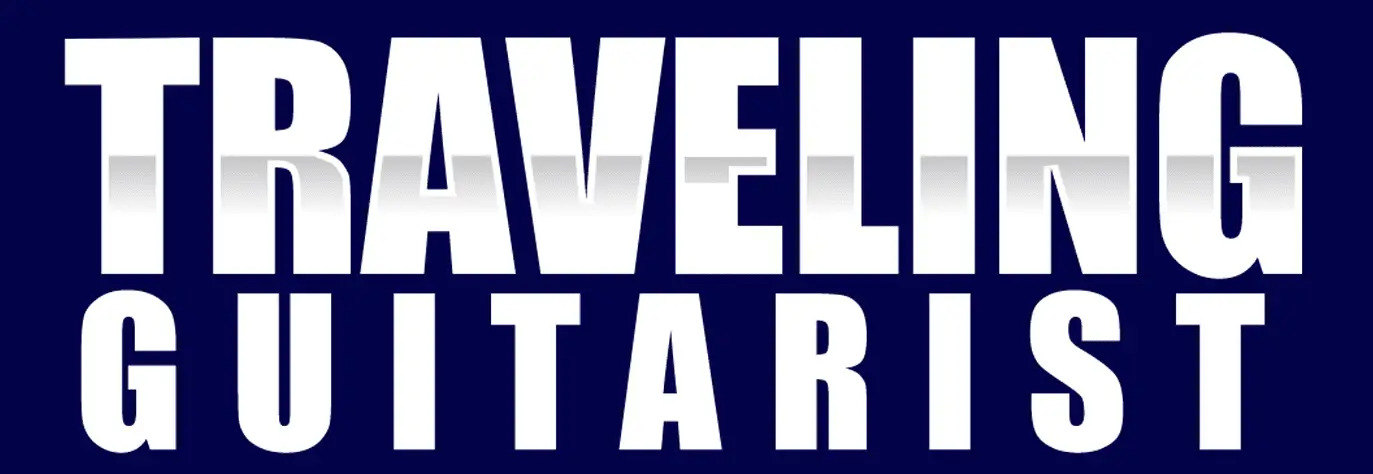
 Written By :
Written By :